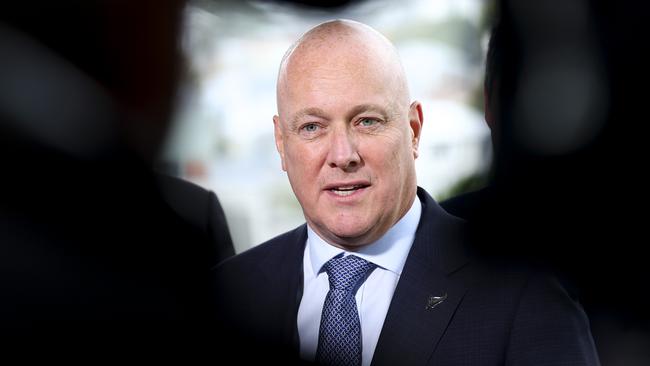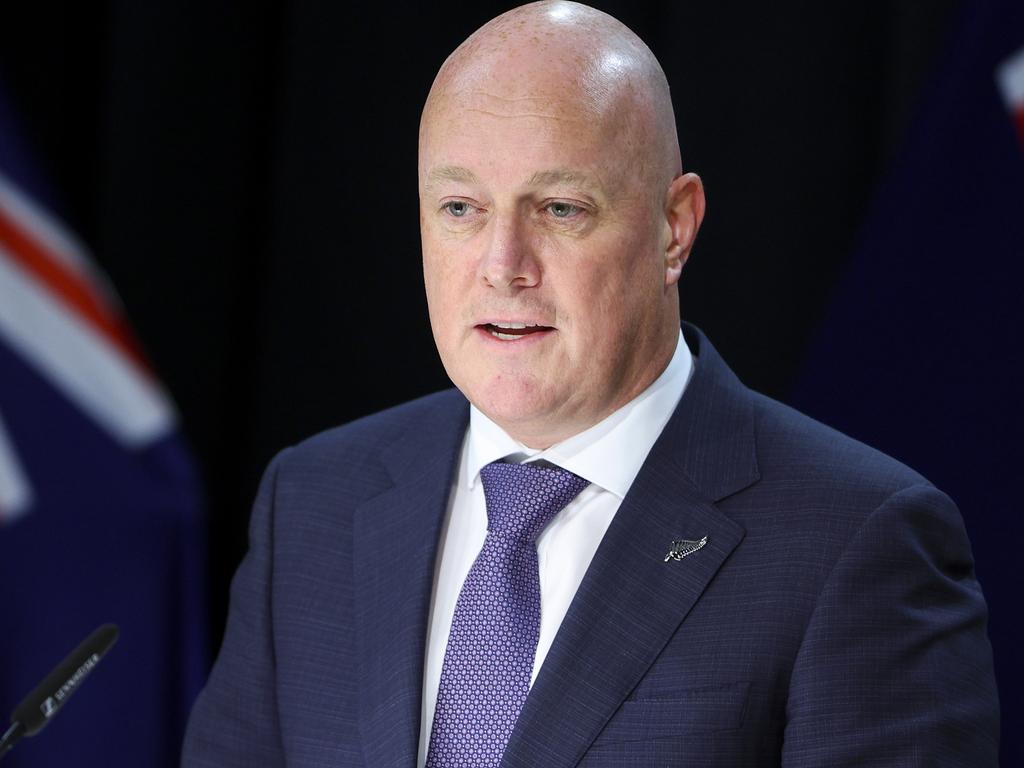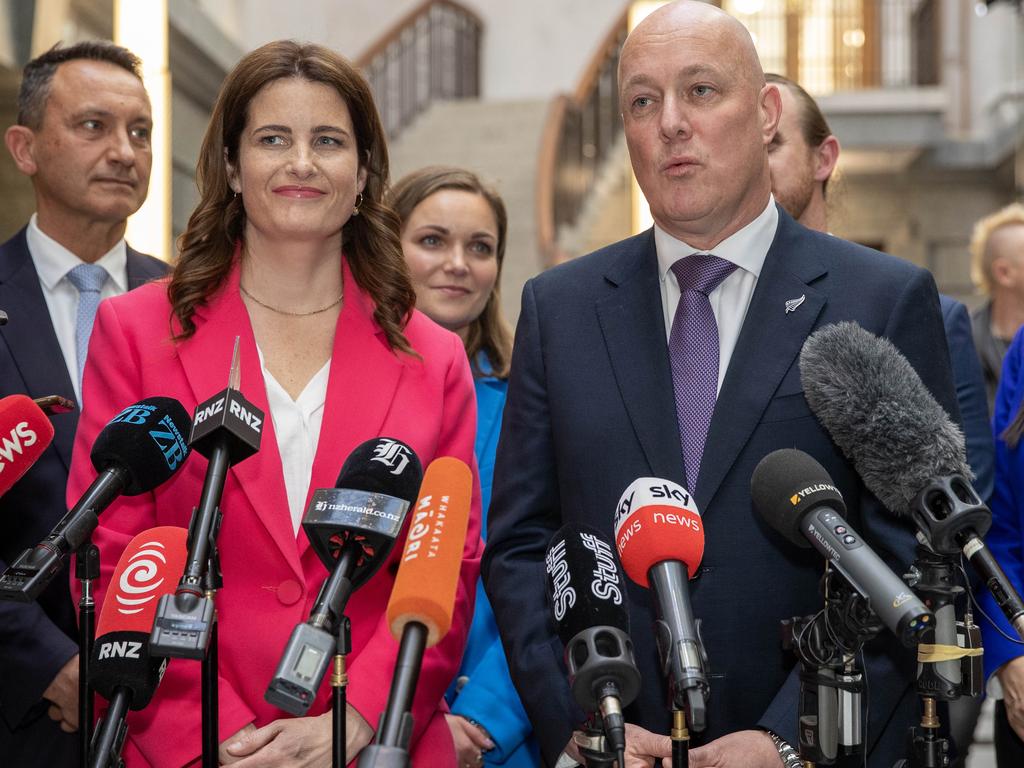Door left ajar for nuclear subs to be welcomed into New Zealand waters
Australian nuclear-powered AUKUS submarines may eventually be welcomed into New Zealand ports.

Australian nuclear-powered AUKUS submarines may eventually be welcomed into New Zealand ports, as new Kiwi Prime Minister Christopher Luxon makes enhancing the strategic relationship between the two Tasman partners the highest foreign policy priority of his government.
“Our view is that AUKUS is very good for our region. It provides greater security and greater prosperity ultimately,” Mr Luxon said.
He said he did not think the AUKUS treaty breached South Pacific nuclear-free principles and that “We believe the AUKUS subs and AUKUS are completely in compliance with the Treaty of Rarotonga”.
New Zealand’s policy since 1986 has been that nuclear-armed and nuclear-powered ships may not visit New Zealand ports.
This led to the breakdown of ANZUS and New Zealand ceasing to be a military ally of the US.
Asked whether there was any prospect that Australia’s AUKUS subs, which will not carry nuclear weapons, could visit New Zealand, Mr Luxon said: “That’s something we’ll look at. It’s something we haven’t yet contemplated.
“I appreciate the submarines are still some distance from materialising.”
However, he also stressed that New Zealand’s policy towards nuclear-powered and nuclear-armed vessels had not changed.
Observers believe it is inconceivable that New Zealand would ever accept visits by nuclear-armed ships, yet even visits by Australia’s nuclear-powered submarines would require a change in New Zealand policy.
Mr Luxon described Australia as “New Zealand’s only ally” and said his government intended to make a deepened relationship with Australia, both strategically and in economic engagement, its No. 1 priority. He also planned to beef up New Zealand’s defence forces and make them a multiplier for Australian forces.
He stressed that the two countries had a great deal of work to do together in the South Pacific in bolstering Pacific island nations.
Mr Luxon said he believed it was crucial that New Zealand and Australia, and other actors in the South Pacific, responded to the priorities of island leaders, such as development and climate action, rather than impose their own priorities.
In other strategic outlooks, he said Wellington’s view of China was similar to Canberra’s.
“We have a longstanding, complex and significant relationship with China,” the National party Prime Minister said. “There are massive areas of co-operation over trade and climate.
“At the same time, we acknowledge that we have different values, and differences on a range of issues. We’ll consistently articulate those privately and publicly.”
The New Zealand government recently publicly called out Beijing over a cyber attack, a most unusual move for Wellington.
On domestic issues, he outlined a disastrous policy inheritance from the government of Jacinda Ardern, and a series of strong government measures that he said would be necessary to correct this.
The most shocking statistic he quoted to The Weekend Australian was that “54 per cent of our kids are not in regular school attendance” … just one a of a series of disastrous social and economic indicators reflecting six years of failed progressive experiment under the Labour government of Ms Ardern.
Some cabinet ministers told The Weekend Australian that New Zealand’s continued status as a First World nation was in doubt unless the new government could turn the economy around.








To join the conversation, please log in. Don't have an account? Register
Join the conversation, you are commenting as Logout